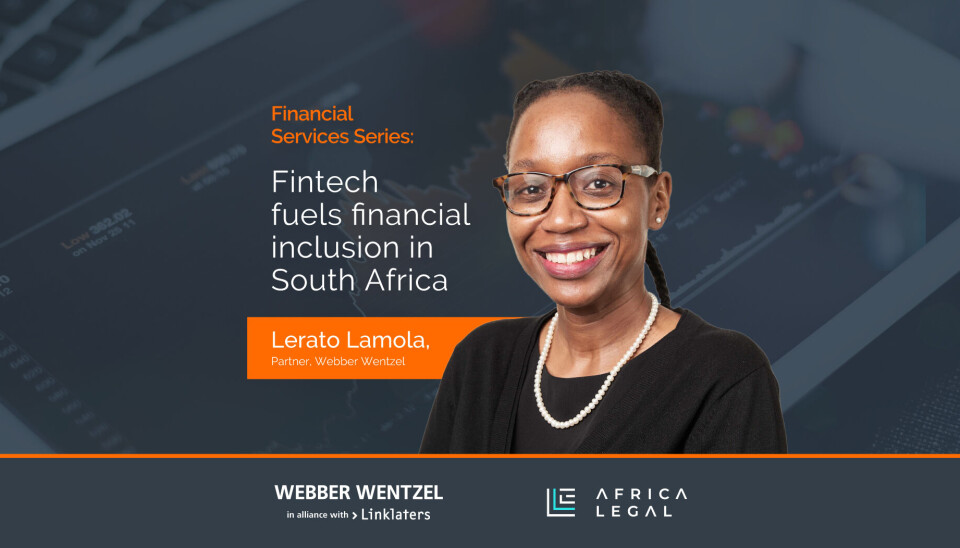Copyright : Re-publication of this article is authorised only in the following circumstances; the writer and Africa Legal are both recognised as the author and the website address www.africa-legal.com and original article link are back linked. Re-publication without both must be preauthorised by contacting editor@africa-legal.com
Fintech fuels financial inclusion in SA

South Africa’s fintech landscape is set to undergo significant change via regulatory reform, technological advancements and increased competition. Lerato Lamola spoke to Craig Sisterson about navigating an exciting future.
Africa is quite unique in the sense that fintech is viewed not just in terms of innovative technology, but also as a key mechanism to deal with financial inclusion and to address a lot of socio-economic challenges, says fintech expert Lerato Lamola.
“If I look specifically at South Africa, quite a large sector of our population still doesn’t have access to traditional financial services,” noted Lamola, a partner at leading firm Webber Wentzel. “So whether they live in a remote area or don’t have access to services for other reasons, that’s where various fintech innovations are finding a gap and providing solutions.”
Lamola’s team recently produced a mid-year update to their 2024 Fintech Year Ahead document, covering trends in AI and machine learning, payments, crypto and blockchain, and Open and Mobile banking and financial services. She says this report highlighted that South Africa and the wider region “currently has a dynamic fintech landscape”, with lots of movement spearheaded by regulatory changes on crypto and cross-border payments, and financial inclusion solutions.
“One of the most interesting trends has been that a lot of our African counterparts have issues with unstable currency,” Lamola commented. “When you can’t get cash in a local currency, that’s where things like digital currencies and mobile money step in to fill the gap and allow for economies still to run.”
While South Africa is one of the continent’s leaders when it comes to fintech and financial sector regulation, Lamola believes that can be a double-edged sword.
“We have the most developed financial regulatory regime on the continent, however that makes it difficult for new players who want to enter the market, particularly when it comes to compliance costs and understanding the regulations. That’s where our team comes in: helping new entrants understand where their products and services lie within the regime, assisting with licensing applications and product structuring, and assisting with engagements with the regulators themselves.”
Lamola and her team also help traditional financial institutions figure out how they can restructure their business, offer new products, and become more agile, like their fintech counterparts. She says traditional financial institutions may struggle to be as adaptable and agile as their fintech competitors due to navigating legacy systems.
While regulation can make it challenging to enter the market, it also inspires innovation, and Lamola believes the opportunities are endless. “With all the new regulations over the past ten to 15 years, a lot of players are now introducing technology-based solutions to deal with new compliance obligations. Or they’re noticing a gap in the regulation and introducing a new product to bridge that gap. So it really is about sitting down and understating what the legislation says and figuring out where the gaps are and where one can fit themselves in.”
South Africa’s AI Planning Discussion Document which was published in April 2024 has received mixed reviews, but is a necessary first step, noted Lamola. Meanwhile, she views the Reserve Bank’s Digital Payments Roadmap as “quite ambitious” and an exciting document to modernise the payments system. “It’s great to see the government acknowledge public–private partnerships because it envisages a lot of its 17 action items will require collaboration. It’s going to require a lot of innovation from the market itself to create solutions, but if everybody comes to the party, it could mean South Africa would be one step closer to being a cashless society.”
